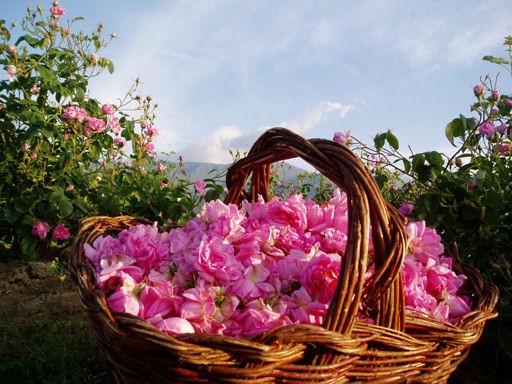AGRI MINISTER MULLS BULGARIAN ROSE ACT
Agriculture Minister, Miroslav Naydenov, announced plans to have experts at his institution working on a rose oil standard and a law for the Bulgarian rose.
Naydenov says that unlike other agriculture sectors, such as fruit growing, the rose cultivation has profited from inclement weather with torrential rains. The expectations are for a larger and better quality crop.
The Minister promises a Rose Act, similarly to the recently passed Wine Act, adding he has secured the support of a number of Members of the Parliament.
"In this Act, as in the wine one, we will include a special standard to protect the Bulgarian rose and rose oil brand name," said he, but admitted that "it would be difficult to produce a Bulgarian perfume to beet French aromas."
The rose producers from the valley of Rose, near the Bulgarian town of Kazanlak already announced they expect a crop of 400 kg of rose petals from one dekare while the purchase price of one kg of rose oil is expected to reach EUR 6 000.
Bulgaria is one of the biggest producers of rose oil in the world. The reason for this is hidden in the high qualities of the Bulgarian Kazanluk rose ("Kazanlashka roza"), a special type, that was cultivated in the region after many years of development. The Bulgarian roses come from the so called Damascena rose.
A large percentage of the harvested roses are used for the production of rose oil - "the liquid gold" of Bulgaria. Rose oil is used mainly for the making of perfumes, chocolates, liqueur and jam - it is 3 times more expensive than real gold. One kilogram of rose oil is extracted from roughly 3000 kg of roses.






